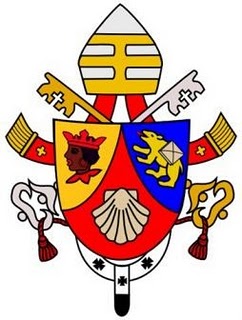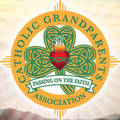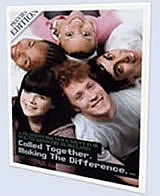REDEDICATION OF ST PETER’S AND ST PAUL’S CHURCH
CLONMEL, CO TIPPERARY
SUNDAY, 18 JULY 2010
HOMILY BY
CARDINAL SEÁN BRADY
ARCHBISHOP OF ARMAGH
Three weeks ago about 300 people from the continent of Europe came to Bangor, Co Down, and Armagh City. They came mostly from Italian towns and villages. places like Bobbio which are linked to St Columbanus. They came to celebrate and to give thanks. Many years ago I visited Bobbio in Northern Italy where I went to pray at the tomb of St Columbanus. Remember Columbanus was the man from South Leinster who left, all those years ago, to spread the Good News about Jesus Christ. In Bobbio, I was delighted to see a vase of freshly cut flowers on his tomb. Isn’t it amazing, after all these centuries, someone had actually remembered, felt grateful, and expressed their gratitude. What a joy to see there are still people around who appreciate the gift, brought by missionaries. They are the sort of people who can sing from their hearts, the words of the Prophet Isaiah –
How beautiful it is to see a messenger
coming across the mountains
Bringing Good News
The News of Peace
So, it is a real joy to be here in Clonmel today as you too celebrate and give thank for the 200 year history of your beautiful Church of St Peter and St Paul. I am very grateful and give thanks to my friend Bishop William Lee for his kind invitation to be here on this joyful occasion. Bishop Willie is Secretary of the Irish Bishops’ Conference, on whom the Conference relies so often and so heavily for its smooth functioning.
I must say I am highly impressed by the huge programme set out by the Bicentennial Committee, under the outstanding leadership of Father Crowley. I know you began by acclaiming all of the individuals, groups and organisations, who have helped make this remarkable 200 years of parish history. Today we thank God for each and every one of them.
I note with joy that the married couples have already honoured their marriages as the foundation of their family life and the bedrock of all parish life. Today too we pray that their commitment, which they renewed on St Valentine’s Day, in the presence of their families and their parish community, will be abundantly blessed and flourish in the years ahead.
You have already noted that the present sense of a Church under siege links the late 18th and early 19th century to the early 21st century. I agree that the spirit, strength and commitment- which enabled this great parish to grow and develop, despite adversity, definitely models the present needs, not only of this parish, not only of this diocese, but of the country as a whole.
To revive our drooping spirits, to rebuild our strength and to renew our commitment, what needs to be done? We need to rediscover the roots of our faith in Jesus Christ as Pope Benedict urges us to do in the Pastoral Letter. We also need to drink deeply from the springs of living waters which Christ offers to each one of us, through his Church.
To get to the roots of our faith, we turn to the historians – especially the students of Church history. I instinctively turned to Mons Michael Olden with whom it was my privilege to be a contemporary in Maynooth and Rome. He, in turn, reminded me of other Church historians such as Father Colmcille – the Clonmel Cistercian Father and Mr Philip O’Connell – a fellow Cavan man – who wrote the History of the Diocese of Kilmore – my native diocese and who spent his life teaching in Clonmel.
So what are these roots of our faith? In his excellent booklet, The Story of the Liturgy in Ireland, Dr Edmond Cullinan reminds us that there were Pre-Patrician Missionaries such as Declan of Ardmór. So while I am honoured to be in the Déise county, following in the footsteps not only of Declan but also of St Carthage, I recognise that here Declan, nor Patrick, is first.
I stayed last night in the great Cistercian Abbey of Mount Mellary, (1832). There I was reminded of the links between Armagh and Lismore. In the twelfth century, Celsus of Armagh, was buried in Lismore. His successor, St Malachy, studied for several years in the Monastic School of Lismore. Christian
O Conairce, the first Abbot of Mellifont, was ordained Bishop of Lismore in 1151. I am also reminded of the contribution of the Cistercian Abbey of Inislounaght and of the Augustinians of Athassel to the religious life and history of this district.
The blood of martyrs is the seed of Christians. I could not come to Clonmel without evoking the sacred Memory of Blessed Maurice McEnrathy, martyred here in 1585 and of Blessed William Tirrie, who gave his life in 1654 and Blessed John Carney martyred in 1653. Coming from the land of the O’Neill’s, I cannot but remember the encounter between Oliver Cromwell and Aodh Dublin O’Neill in this locality.
Having spent 20 years of my life in the Irish College in Rome, I gladly recognise the contribution to the Church in Ireland of Fr Luke Waddina, OFM, He was a Waterford man and , founder of the Irish College and of St Isidore’s in Rome. His cousin Fr Thomas Whyte, from Clonmel, founded the Irish College in Salamanca in 1592. Mention of the Irish Franciscans recalls the unbroken presence of the Franciscan Missionaries in this town since 1269.
I am well aware also that I am in the land of Bishop John Brennan, the lifelong friend and companion of my martyred predecessor, St Oliver Plunkett. Today I gladly pay tribute to the sacred memory of them both for their part in keeping the flame of faith alight and alive in our respective dioceses.
The century after the era of John Brennan was a century of trial and tribulation and persecution. Yet the flame was kept alight. When no priest was available or when it would have been too dangerous for a priest to appear in public, the laity conducted the funerals themselves. Even though the Mass was in Latin, the people remained very attached to the Eucharist. There were prayers in Irish to accompany the parts of the Mass and even to be recited on the way to and from Mass. We are grateful to Nioclás MacCrath who collected a beautiful set of such prayers in An Rin. I love the prayer which was said before Mass.
During the penal years the people of Waterford and Lismore resisted well the onslaught of this evil. When the laws, restricting the public expression of Catholicism, were relaxed, the first of the new Cathedrals to be built was that of the Holy Trinity in Waterford City in 1793. Not to be outdone by the Waterford people, Clonmel made its mark in 1810.
The building of this great Church took place because the Mother Church, St Mary’s was no longer adequate to the needs of Clonmel. That tells me one important fact – the people of Cluain Meala – of the Honey Vale in 1810, had their priorities right. They knew who they were and why they were here on earth, on the banks of the Suir – on the border between Na Déise and the Premier County. They knew that to receive eternal life, they must love the Lord, their God. Yes, they must render to Caesar what belongs to Caesar but also to God what belongs to God. As creatures, what we need to do is to acknowledge who God is – Our Creator and Saviour – the Lord and Master of everything that exists.
‘You shall worship the Lord your God and him only shall you serve’, says Jesus, quoting from the Old Testament. So the people of Clonmel decided to build themselves a new and bigger and better place of worship – the Church of Sts Peter and Paul. The building heralded a century of tremendous expansion. One example was the return of the Cistercian Monks in 1830 – having been suppressed in the 16th century. This time they came first not to Armagh – that would take place 100 years later – instead they came to Mount Mellery here in this diocese of Waterford.
Rediscover the roots of your faith. Cut off from its roots, the tree withers and dies. It bears no fruit. Pope Benedict’s second piece of advice is: ‘Drink deeply from the springs of living water’. Christ offers us those springs to us through His Church. To the Samaritan woman, whom he met at the well, Jesus made a fantastic promise: ‘Those who drink the water that I will give them, will never be thirsty again for that water will become a spring that will provide them with life-giving water and give them eternal life’. But what does at that mean? I think it means choosing, like Mary in today’s Gospel – the right thing. It means sitting down at the feet of the Lord and listening to His teaching.
What does choosing the better part really mean? Martha decided to go off and make the tea or the dinner or the supper. She decided not to sit down and listen to Jesus as Mary did.
I think it can be helpful for all of us – no matter how busy we are or we think we are – to sit down, even occasionally, and face the great questions of life:
• What does life call me to do?
• What are human desires all about?
• What am I, in fact searching and striving for?
• Who, in fact, am i?
The tragedy is, not even to ask the questions. The disaster is not even to wonder if life is more than one thing after another.
It is important to be open to the truth. For openness to the truth is openness to God – the ultimate mystery. Those who believe in Christ, see that the goal of all our searching and seeking is, in fact, God – the God who is revealed in Jesus Christ.
You have made us for yourself O Lord and our hearts are restless until they rest in you
We follow Jesus Christ because we believe that the great mystery has been given to us in the person of Jesus Christ. Christians believe that the real place of rest and stillness is that region where God dwells in our innermost being, where God is experienced in quiet and in silence – a silence that speaks more loudly than word.
In today’s Gospel Mary entertains Jesus. He is the Word made flesh – the real presence of God. She sat down at his feet and listened to his teaching. Mary is always there for him. Mary got her priorities right. She drank as deeply as possible the words of life – from the lips of Him who came to give us life.
The mystery of God had been hidden for ages, then it was all revealed in the person of Jesus Christ. He longs for our company. By baptism we have been grafted onto him who said: “I am the vine, you are the branches”.
The Eucharist nourishes and strengthens the bonding of our friendship. St Paul urges us to put on the mind of Christ. When I became a bishop I chose as my motto ‘To know Jesus Christ’ We cannot put on his mind and adopt his values, unless we actually know Jesus Christ. We cannot make his attitudes our attitudes unless we figure out what the attitudes of Christ actually are. But, if we do so, we experience a remarkable liberation from self-preoccupation.
Today we thank God for all who have come here for 200 years to drink at the fountain of everlasting life. The Prophet Jeremiah laments the fate of those who have turned away from God – the spring of fresh water. Instead of worshipping God they had dug cisterns – cracked cisterns that can hold no water at all. Here in Clonmel the problem has probably more often been burst banks rather than that of cracked cisterns. When the banks burst – and I speak here of rivers – not financial institutions – the people of Clonmel turned, not to the broken cisterns of the other gods – the broken cisterns of wealth and power but instead they turn to the spring of fresh water provided by their faith in Christ. Long may they continue to do so.
AMEN






You must be logged in to post a comment.